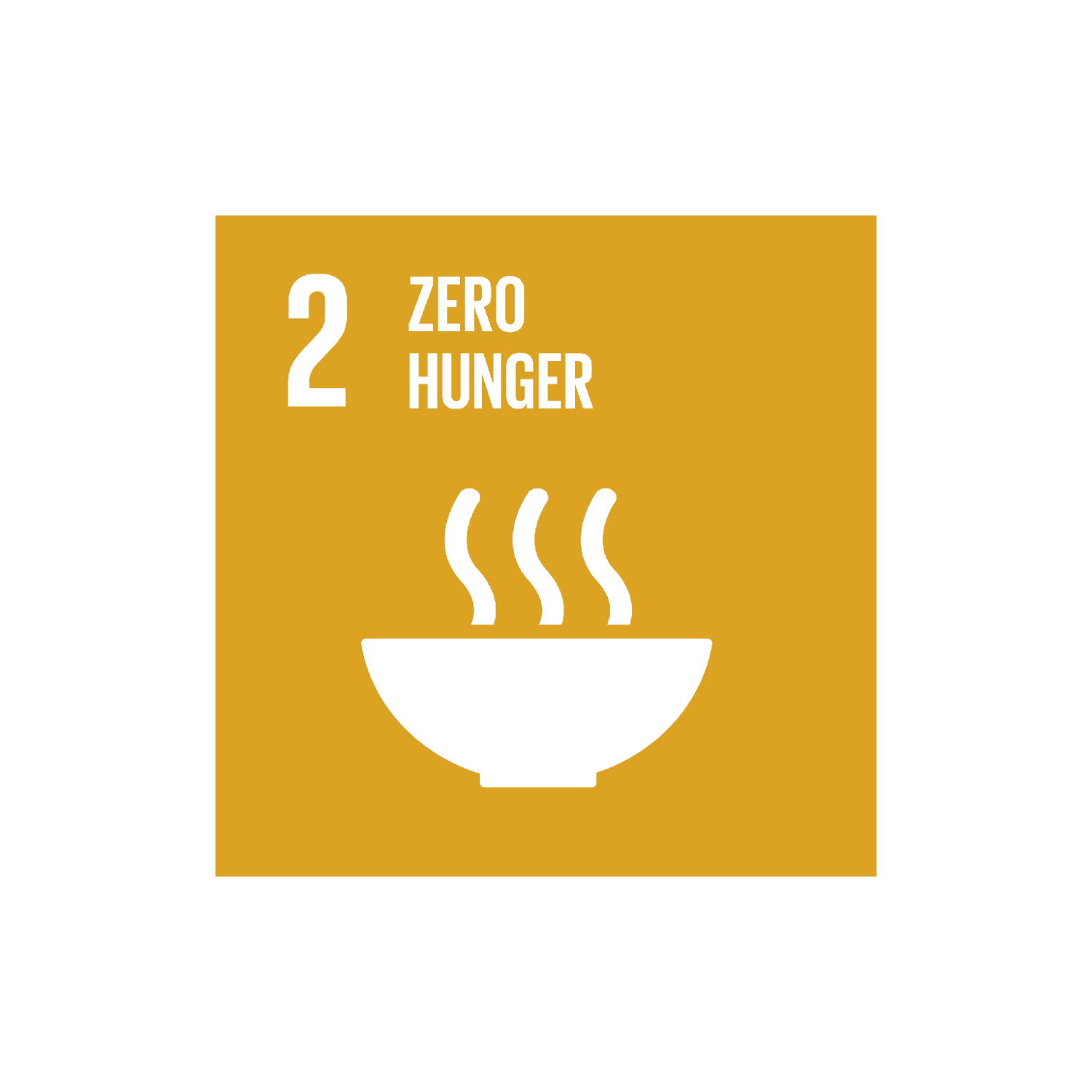
The Sustainable Development Goals (SDGs), launched by the United Nations in 2015, are an excellent vehicle to work towards our vision. They represent an action plan for the planet and society to thrive by 2030. For the goals to be reached, everyone has a part to play. The food industry in particular has the possibility to make an impact to achieve critical progress on all 17 SDGs, but not all of them are equally addressed by companies, as highlighted in our 2020 report.
The SDGs have been developed for public governance, and we have worked hard to translate the high level goals into our company practices. In 2021 Nutreco and Skretting focused on identifying areas of impact to bridge this gap and instigate measurable targets to demonstrate progress. With our Sustainability Roadmap closely aligned, we have further identified the following key SDG for our company:
SDG linked with Roadmap
SDG2 (Zero hunger)
- Develop a local supply of raw materials for production in areas where it does not yet exist (Africa and Asia).
- Expand community development and community engagement initiatives to touch the lives of 12,000 people in the communities where we operate. This can be through direct development with small farmers at or near economic poverty levels (e.g., earning less than €1.90 / day) that helps raise their incomes above poverty levels or direct engagement with local communities in projects that raise awareness of sustainability, educational initiatives and community improvements.
SDG3 (Good health and well-being)
- Ensure no use of prophylactic antibiotics employed in feed, forage or water.
- Ensure absolutely no use of any antibiotic that are listed on the World Health Organization’s list of “Critically Important for Human Health".
- Ensure the use of antibiotic medication can only be applied to feed and water with a valid clinical diagnostic result demonstrating bacterial infection and under direct and approved medical supervision by a qualified veterinarian.
SDG 5 (Gender equality)
- One out of three hires is female (starting in 2020).
- We target having 30% women in senior leadership by 2025.
- We implement the “Taking the Stage” program, beginning in 2020, to help facilitate this transition.
SDG 7 (Affordable and clean energy)
- Commitment to Science Based Targets.
- Reduce our carbon footprint linked with fuel and coal to zero.
- Increase our share of renewable energy.
- Explore possibilities to enter Virtual Power purchasing agreement.
SDG 13 (Climate action)
- Commitment to Science Based Targets.
- The innovation stage gate process includes a sustainability filter (qualitative and quantitative) to ensure no environmental impact trade-offs and encourage the most significant environmental impact.
SDG 14 (Life below water)
- Source 100% of marine ingredients from sources audited and certified by MarinTrust or MSC.
- Ensure that where MarinTrust or MSC certified marine ingredients are not available, all non-certified ingredients will be engaged in a Fishery Improvement Project (FIP). That FIP will publicly report developments annually.
SDG 15 (Life on land)
- Conduct an analysis to understand the risks of deforestation and conversion in our supply chain, focusing on our highest volume plant ingredients and ingredients known to have global risks (i.e., soy and palm oil).
SDG 17 (Partnerships for the goals)
- Engage with local, regional and national governments to encourage and promote regulatory reform for the responsible use of antibiotics. This includes public speaking, blogs, articles, letters to political representatives and industry workshops to transfer technology that should be adopted to ensure responsible usage.

Next
Transparency & trust
In last year’s report we explained the process that led us to define Transparency and Trust as a new pillar for Skretting. We have seen how the market is increasingly demanding more transparency with the aim of identifying and preventing environmental, social and governance risks connected to our operations.







